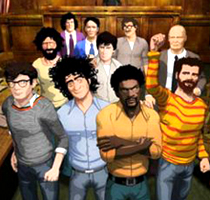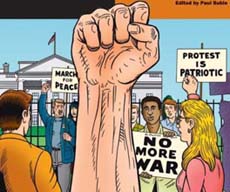
Chicago 10: Image Politics and Protest, From the Past to the Present
Popular culture is the site of complex struggles between the forces of repression and those of liberation, British critical theorist Stuart Hall argued two decades ago. Movies and music, television and books all constitute the raw material of political imagination. Such cultural products not only engage the present but craft a narrative of the past. And what better way to blend past and present, culture and politics, than an animated documentary of the (in)famous Chicago conspiracy trial, one of the most well-known events of the 1960s?



